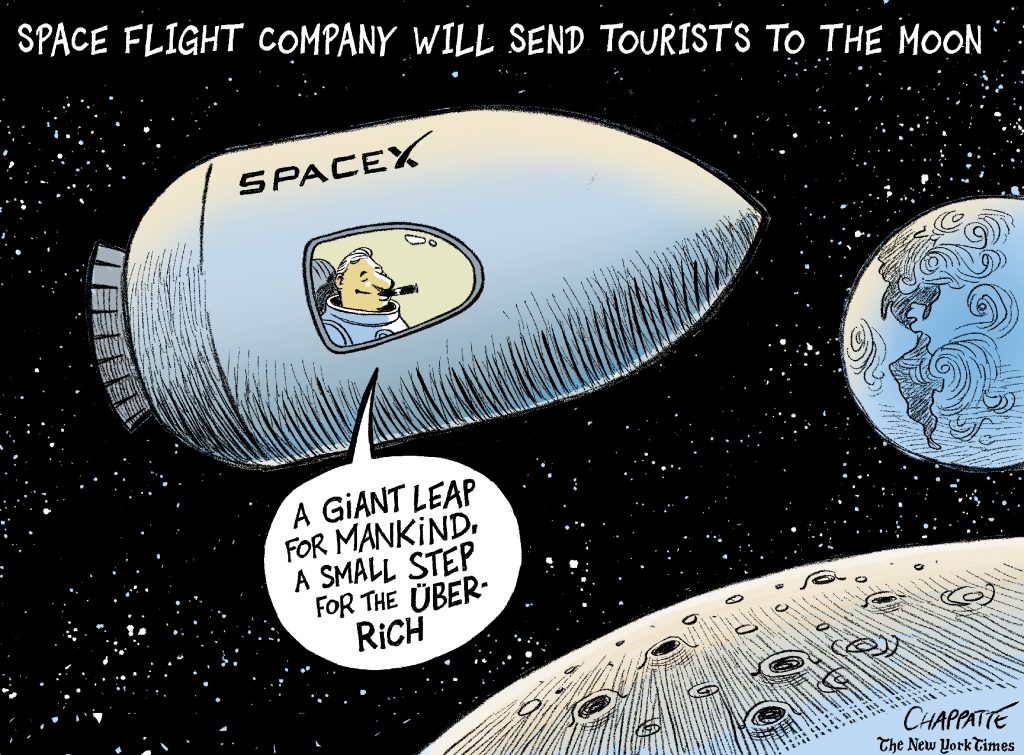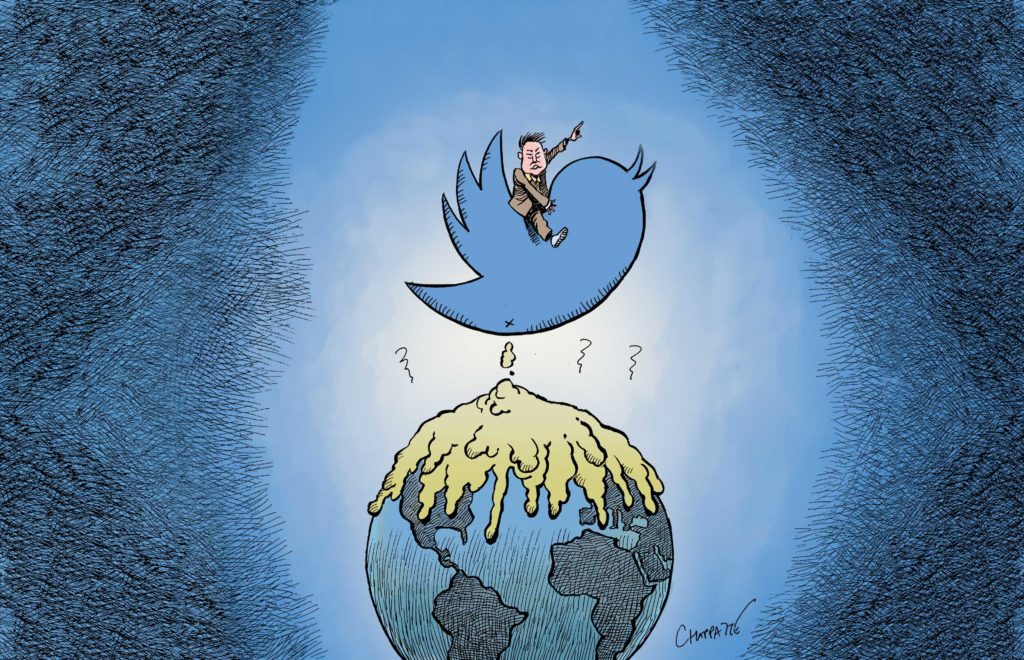Has globalisation reached its apex after centuries of growth as suggested by the latest figures of the WTO? In the affirmative, does this imply that we are ushering into a new era of degrowth? Or are we witnessing the reorganisation of the very architecture of globalisation, which remains based on the twin logic of the acceleration and continuous increase of the volume of exchanges, as well as the steady densification of geographic connectedness. Are global exchanges restructuring concomitantly to the fourth technological revolution and the expansion of the digital economy? The present Dossier proposes to approach this question by observing the nature and the evolution of the principal flows that characterise globalisation.
© Chappatte, The International New York Times - 04 mars 2017. www.chappatte.com
Has globalisation reached its apex after centuries of growth as suggested by the latest figures of the WTO? In the affirmative, does this imply that we are ushering into a new era of degrowth? Or are we witnessing the reorganisation of the very architecture of globalisation, which remains based on the twin logic of the acceleration and continuous increase of the volume of exchanges, as well as the steady densification of geographic connectedness. Are global exchanges restructuring concomitantly to the fourth technological revolution and the expansion of the digital economy? The present Dossier proposes to approach this question by observing the nature and the evolution of the principal flows that characterise globalisation.
Evolution or Revolution?
-
I

Globalisation Unbound: Transnational Flows in the Digital Era
Reading time: 4 min -
1

The Changing Paradigm of Trade in the 21st Century
Reading time: 5 min -
2

Energy Trading: An Uncertain Horizon
Reading time: 4 min -
3

Flowing with Data: Digital Humanitarianism Today
Reading time: 5 min -
4

International Migration: A Canary in the Coalmine of Globalisation
Reading time: 5 min -
5

Public Policy in the Spiral of Universalising Education Standards
Reading time: 4 min -
6

The Global Threat of Epidemics One Century after the Spanish Influenza
Reading time: 4 min











